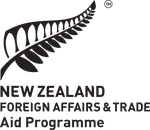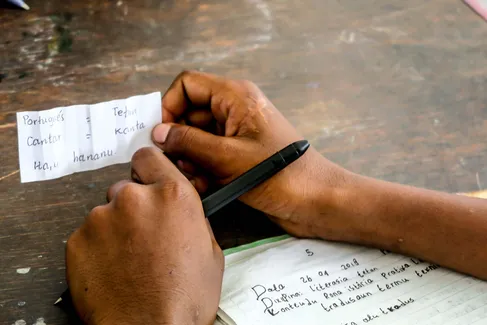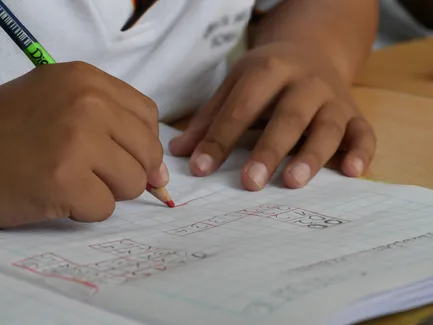Bridging barriers to quality science education in the Pacific
Improving science education for students and teachers with a mobile-friendly, culturally aware training program
Vanuatu, Solomon Islands, Samoa, and Cook Islands
Location
Cook Islands, Samoa, Solomon Islands and Vanuatu
Purpose
To help year 10 teachers and students become confident, critical thinkers in science and to support effective teaching and learning with ICTs.
Approach
Teachers receive ongoing, practical professional development to support them to improve their teaching. We help teachers make learning interactive, engaging, and fun. Learning content is delivered to teachers through the Pacific Learn app, built for the Pacific using human-centred design.
Impact
- Program surveys show that 72% of teachers feel more confident in their abilities, while 79% of students find the content relevant to their lives beyond the classroom.
- 82% of Ministry of Education staff feel confident planning and designing elearning.
- 79% of students in Year 10 found the content relevant to their lives outside the classroom
- In Vanuatu, 70% of participating schools have seen an improvement in their Year 10 science exam results compared to the national average.
Highlights
- Tailored, culturally relevant science activities that make learning fun and relevant for students
- Ongoing and interactive blended professional development for teachers
- Strengthened connection between Ministry of Education, school administrators, and communities of teachers all working to improve learning
- Local staff embedded in Ministries lead activities that strengthen skills and knowledge of teachers and Ministry staff
- Data from the program and app is used to improve decision-making
Achievements
- 3306 students received higher-quality science teaching
- 35 schools are receiving ongoing support to improve year 10 science, 43% of which are in remote areas
- 94 teachers and school leaders trained to use ICTs to enhance teaching and learning
- 10 remote schools had solar battery systems installed, ensuring sustainable access to power and enabling the use of technology tools
- 100 hands-on science activities developed and used in classrooms
Partners
Governments of Cook Islands, Samoa, Solomon Islands, Vanuatu, USP, Nanogirl Labs, Te Pūkenga (formerly Wintec), and supported by MFAT.
The Pacific eLearning Program (PeP) is a groundbreaking educational initiative in the Cook Islands, Samoa, Solomon Islands, and Vanuatu. It empowers Year 10 teachers and students to excel in science.
Providing tailored science activities and professional development for teachers, PeP has boosted teaching quality leading to increased student engagement in Year 10, showing the potential for future elearning initiatives. It provides equal opportunities for quality education and the continuous professional development of teachers and learning outcomes for students as a result of its ability to reach teachers and students in remote areas. It also ensures that resources are culturally responsive and that science teachers can access effective teaching methods and training.
Our approach to strengthening teachers’ knowledge and motivation focuses on a combination of technology, subject matter knowledge, pedagogy, behaviours, and practices. We know when teachers learn more, their students' outcomes improve.
Using innovative methods and digital technologies to enhance the education system's capacity, the program serves as a 'proof of concept' for future expansion of elearning and teacher professional development. Our mobile-first platform - Pacific Learn - simplifies the delivery of resources, including providing teaching activities that can be used and adapted by teachers to suit their students, multimedia for classroom use, and microlearning professional development courses.
Leveraging Pacific Learn, PeP delivered professional development and teaching resources effectively and efficiently to teachers in both urban and remote areas, emphasizing equal access for all students by prioritizing gender responsiveness, cultural relevance, and diverse perspectives. Mobile-first training eliminates the high cost of printing and transporting materials and enables frequent, continuous training, even offline, while offering easy content updates.

The use of ICT in the classroom has built so much confidence in me in teaching science. It has also improved my digital skills.

The program has successfully provided continuous professional development, enhanced access to resources, and fostered a more interactive learning experience. PeP is an initiative explicitly focused on improving secondary science education in the Pacific region and aligns with national education plans and the Pacific Education Framework (PacREF). It has transformed teacher practices towards interactive and engaging lessons, significantly increasing students' time spent on productive activities during science lessons.
Students in Year 10 are becoming confident, critical thinkers in science. In Vanuatu, 70% of participating schools have seen an improvement in their Year 10 science exam results compared to the national average.
The PeP program is not just a success in individual schools but a proof of concept that can guide the implementation and expansion of elearning programs across the Pacific region.
The Pacific eLearning Programme is powered by Bero, Catalpa's specialised mobile learning platform.

This has helped to explain and demonstrate science concepts which is very useful since most students are from very remote areas. The micro courses in the app helped me improve techniques, which has boosted students’ academic performance



